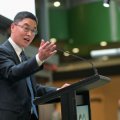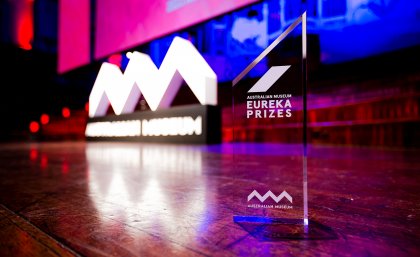
Two teams of researchers and a science engagement team from The University of Queensland are finalists in the prestigious 2024 Australian Museum Eureka Prizes, honouring excellence in scientific discovery, invention, communication and innovation.
Professor Xiwang Zhang and Dr Zhuyuan Wang from UQ’s Dow Centre for Sustainable Engineering Innovation and the ARC Centre of Excellence for Green Electrochemical Transformation of Carbon Dioxide (GETCO2) are finalists for the Eureka Prize for Innovative Research in Sustainability for building a generator that absorbs carbon dioxide (CO2) to make electricity.
A team led by Professor H Peter Soyer at the ACRF Australian Centre of Excellence in Melanoma Imaging & Diagnosis is a finalist for the Eureka Prize for Excellence in Interdisciplinary Scientific Research for work on the early detection of melanoma.
Professor Mark Walker and his team from UQ’s Institute for Molecular Bioscience together with colleagues from the University of Melbourne, CONACYT and University of Wollongong are finalists for the Eureka Prize for Infectious Diseases Research for their work on preventing Streptococcus A outbreaks.
And STEM inclusion program Wonder of Science led by UQ’s Dr Kaylene Cooper is a finalist in the Science Engagement category for fostering STEM engagement, particularly across regional and remote Queensland.
The 2024 Australian Museum Eureka Prize winners will be announced at an award ceremony in Sydney on 4 September.
Explore the work of our finalists below:
Turning CO2 into sustainable power
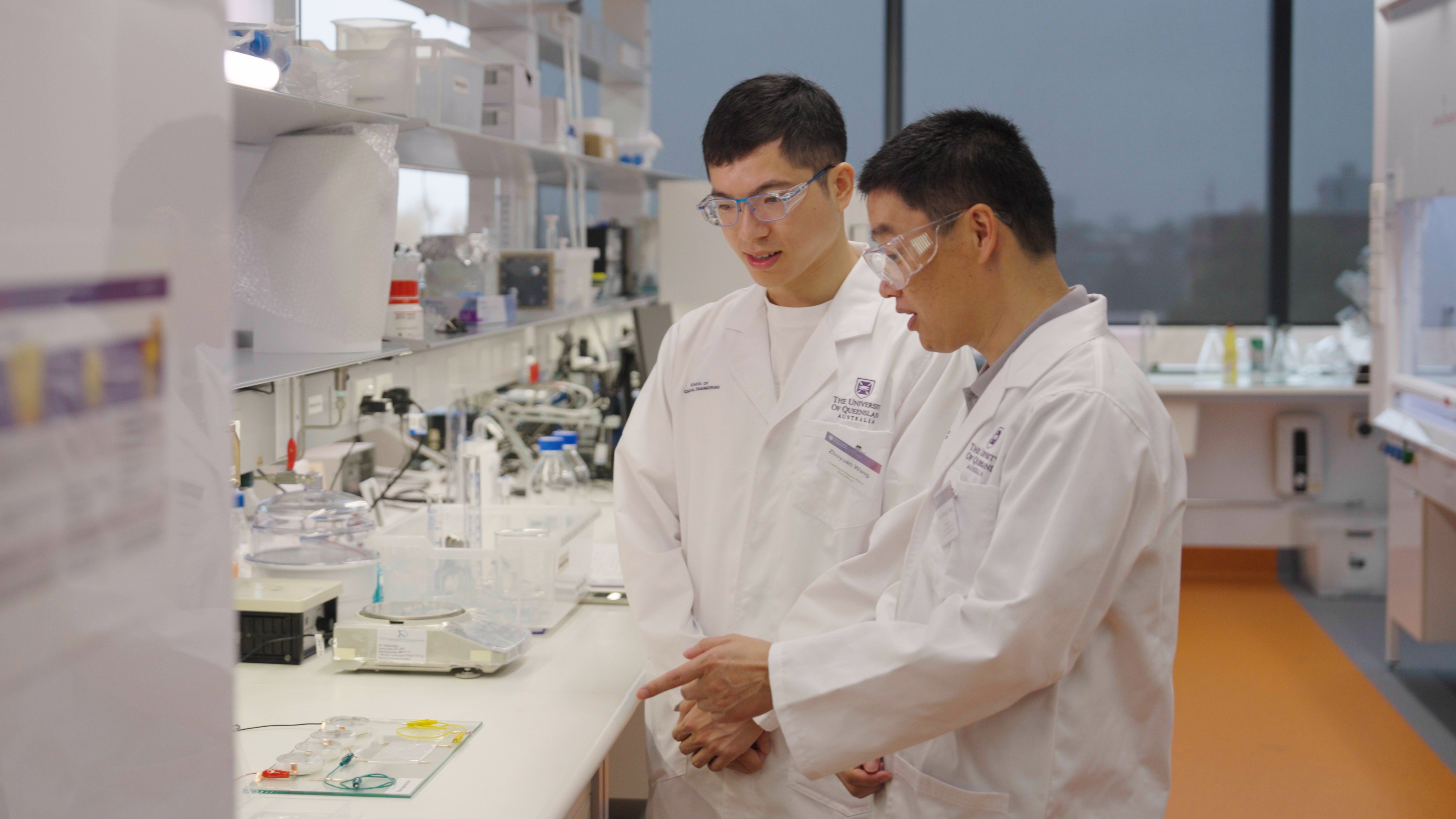
Professor Xiwang Zhang and Dr Zhuyuan Wang are dedicated to addressing the concerns of climate change — and the specific challenge of CO2 emissions.
They have built a generator that absorbs carbon dioxide (CO2) to make electricity.
“When we saw electrical signals coming out of this nanogenerator, I was very excited but worried I’d made a mistake,” Dr Wang said.
“I double-checked everything and it was working correctly, so I started dreaming about changing the world using this technology.
“Our generator goes further than being carbon neutral – it captures CO2 as it generates energy.”
Professor Zhang said the development of the nanogenerator will continue through GETCO2, led by UQ’s School of Chemical Engineering.
“We want to realise the value in a problematic greenhouse gas and change the perception of CO2,” Professor Zhang said.
Professor Zhang and Dr Wang’s world-leading research is recognised by being named a finalist for the Eureka Prize for Innovative Research in Sustainability.
Detecting deadly cancers
The multidisciplinary team from ACRF Australian Centre of Excellence in Melanoma Imaging & Diagnosis is currently conducting the largest ever Australian melanoma cohort trial of 15,000 individuals undergoing 3D total body imaging for melanoma early detection.
Project leader Professor H Peter Soyer said it involves testing a combination of technologies to improve the early detection of potentially fatal skin cancers.
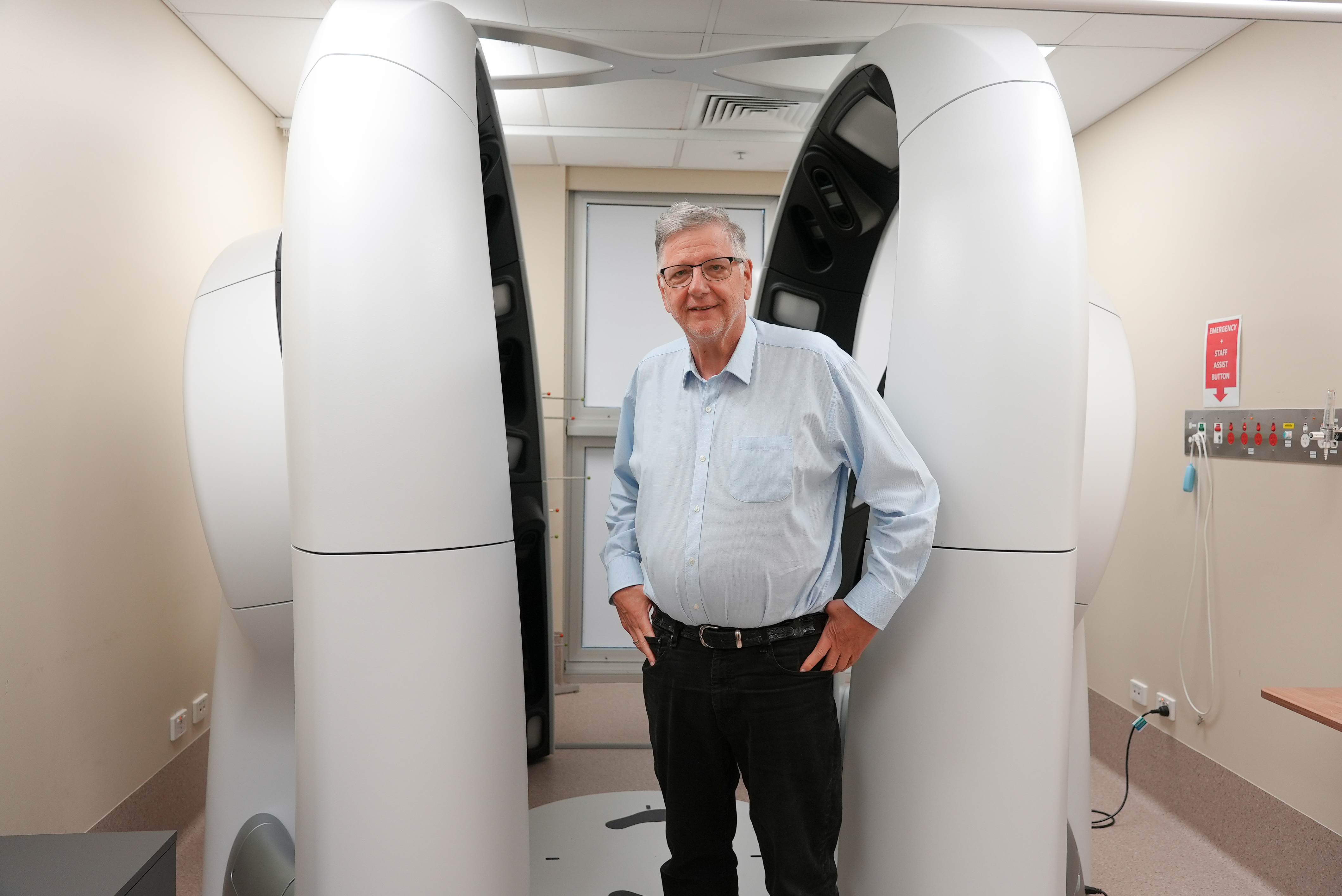
“Our research is investigating the effectiveness of 3D total body photography to assist clinicians in streamlining skin cancer imaging and enhancing diagnosis,” Professor Soyer said.
“This research will inform work towards a national, targeted melanoma screening program.
“We are also deploying these 3D imaging systems across regional Australia to bolster telehealth capabilities and ensure equitable access to melanoma early diagnosis.
“With more than 18,000 cases of melanoma diagnosed in Australia every year, the centre leads world efforts to improve screening and management of this deadly cancer.”
The team from the ACRF Australian Centre of Excellence in Melanoma Imaging & Diagnosis is a collaboration between The University of Queensland, University of Sydney and Monash University.
Their outstanding work has been recognised by being named a finalist for the Eureka Prize for Excellence in Interdisciplinary Scientific Research.
Preventing Strep A
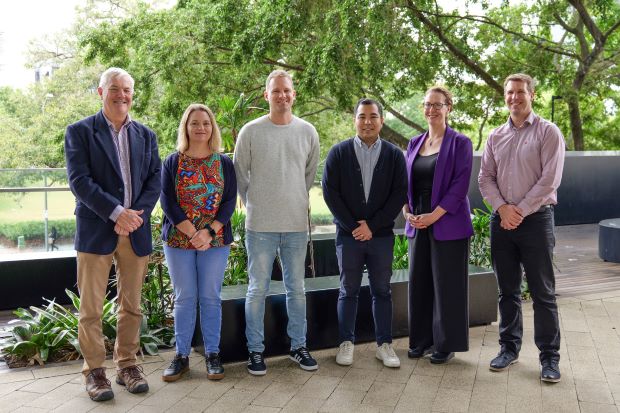 Responding to a post COVID-19 surge in Streptococcus A infections, Professor Mark Walker and his team at IMB, together with colleagues from the University of Melbourne, CONACYT and University of Wollongong formed the StrepA Outbreak Prevention Team.
Responding to a post COVID-19 surge in Streptococcus A infections, Professor Mark Walker and his team at IMB, together with colleagues from the University of Melbourne, CONACYT and University of Wollongong formed the StrepA Outbreak Prevention Team.
“Strep A bacteria are responsible for common throat infections and also the major cause of childhood diseases such as scarlet fever and septicaemia which contribute to child deaths globally,” Professor Walker said.
“The team is tracking the disease spread to mitigate clinical impact and leading efforts to develop a much-needed vaccine.
“Indigenous Australians have the highest rates of Strep A in the world, so it is imperative that we understand the mechanisms of the spread of the disease.”
The team has been named a finalist for the Australian Infectious Diseases Research Centre Eureka Prize for Infectious Diseases Research.
The Wonder of Science
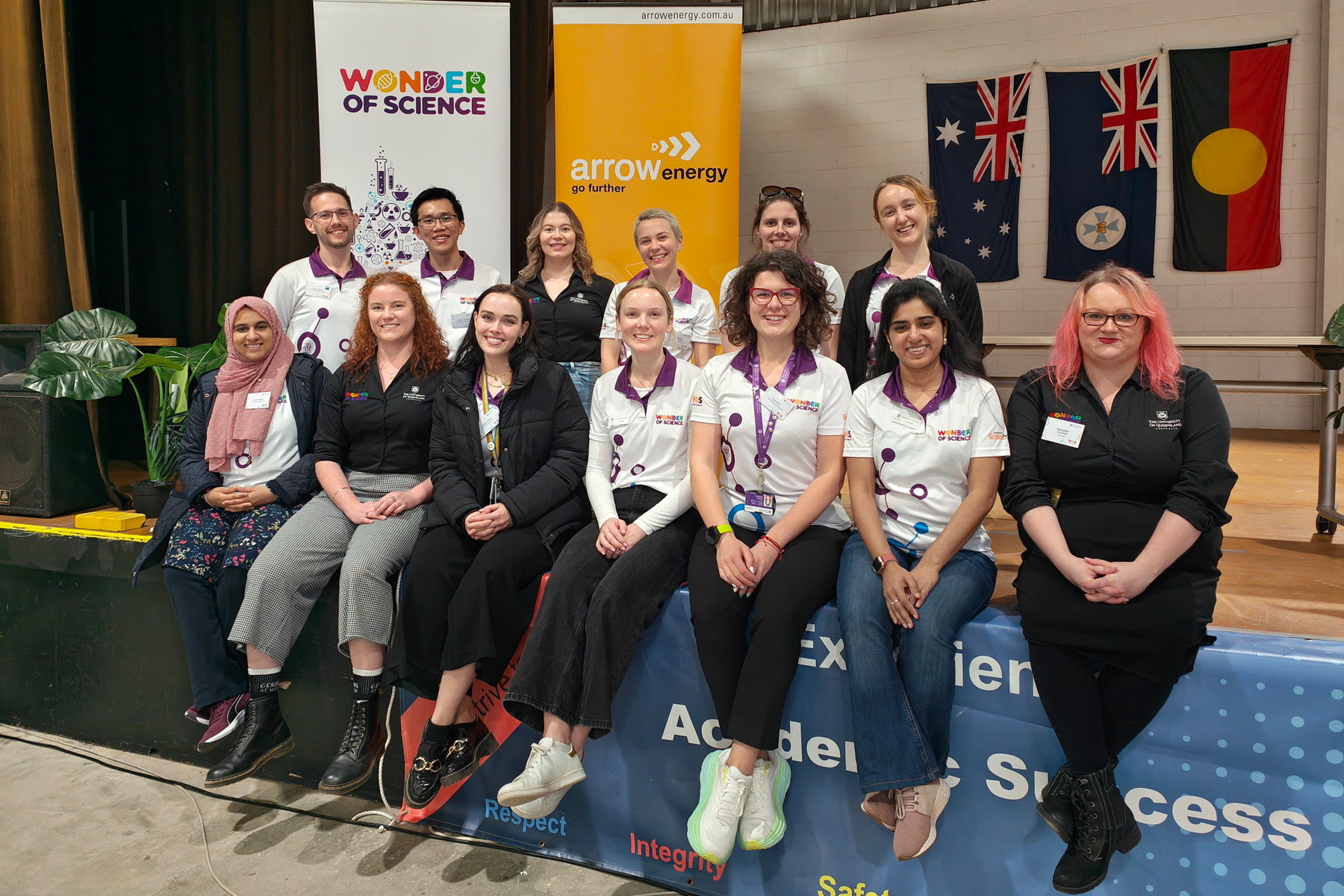 Wonder of Science, led by palaeontologist Dr Kaylene Cooper, has delivered STEM education programs to thousands of school communities across Queensland since 2012.
Wonder of Science, led by palaeontologist Dr Kaylene Cooper, has delivered STEM education programs to thousands of school communities across Queensland since 2012.
“In the 12 years we’ve been operating, we’ve reached almost 124,000 people, providing teacher support and STEM challenge tasks for Year 4 – 9 students,” Dr Cooper said.
“Our mission is to create a culture where all students, their teachers, parents and other community members understand and value the importance and potential of science, and STEM pathways and careers.
“In particular, we are supporting low-income, female, neurodiverse and Indigenous students to build scientific literacy.”
The team’s outstanding efforts in fostering public connection to science has been recognised by being named a finalist for the Eureka Prize for STEM Inclusion.
Image top left: Dr Wang and Professor Zhang look at the nanogenerator
Image top right: Professor H Peter Soyer
Image bottom left:Professor Mark Walker (far left) and his team
Image bottom right: Dr Kaylene Cooper (far right) The Wonder of Science team
Media contact
UQ Communications
communications@uq.edu.au
+61 429 056 139









